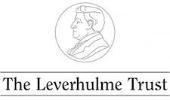 |
Newcastle University Newcastle upon Tyne NE1 7RU United Kingdom. |
 |
What would you say that reading books gives you, in terms of benefits? This can be in terms of wellbeing, or really anything.
Some of the benefits go back to some of the early questions, in that if I’m going through a particular phase of interest in something, it can help me understand and learn more. So for example, I am fascinated by Russia, and I think part of that fascination comes from the fact that Russia was closed when I was growing up. But I was always interested in the music and the literature. And I read quite a bit of non-fiction, both written in English, but also written in Russian and translated, and that is giving me insight. And I have been to Russia twice, so it’s kind of building on that now, and helping me frame my responses to what’s going on with Russia and Ukraine and Crimea at the moment. So I think the benefits are that it can enhance, deepen, challenge … I think, if I were not reading I would get very tetchy, and I know that I have to prepare for old age and think about things like audiobooks were I to lose my sight. And that would be the worst thing, to me, is to lose my sight, as it was for my father, who ended up reading books through thick magnifying glasses, he had very serious, you know, he was virtually blind, but he didn’t like audiobooks. I think for the wellbeing one, though, I think it is a sign of being ill if a reader does not want to read, and I’m just basing that on experience, very close experience, of a partner, who has since died, and of my father, both of whom suffered from severe depression, and it was always a sign that they were ill when they did not want to read. So I … and reading is not a cure, and reading does not help people who are properly depressed as opposed to just feeling a bit blue. But I think even when you’re blue you can’t be bothered. And so I think that, not that it necessarily contributes to wellbeing, but that it is an indication, and I would think if someone is taking in a medical context, if someone is a keen reader and they are not reading, that would be, you know … So if I actually, if my GP knew how important reading was to me, and then I said to him I haven’t read a book for a fortnight, that would be a major sign, and I think … as anyone takes any pleasure in anything, whether it’s walking, or building boats, or cooking. So I personally don’t think that – if it makes you feel good, yes – but I don’t think it makes you better. What I would never … what I haven’t read, and deliberately wouldn’t do, and I know other people do this, is I don’t want to read books that are reflecting what I’m going through at the moment. So I do not look to reading – as opposed to looking up a medical reference quickly – but I would not … so when my partner died, I did not want to read about other people whose partner had died, it’s too painful. You can do it afterwards. And I think it was around about that time that Julian Barnes wrote, what was it called, A Time to Tell, or something? And it’s about how he dealt with the death of his wife, and he … you know, the third one was all about grieving. And I think Nina Bawden has written one as well about losing her husband in that rail crash. And once I knew what they were about I knew I didn’t want to read them.